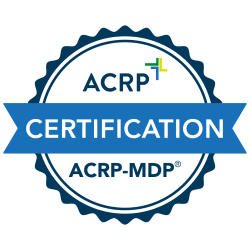The enthusiasm is easy to hear in the voice of Dr. Bill Gluck, program director for the Clinical Trials Research and Medical Product Safety/Pharmacovigilance programs at Durham Technical Community College in North Carolina. Maybe a bit of relief, too.
“People in the [Research Triangle Park (RTP) area] are really working together” to improve clinical trials, Gluck said. “For the first time, everyone who needs to talk is at the table,” he added.
Gluck knows all about the history of clinical trials in RTP and its surrounding environs. He’s been in the pharmaceutical industry in one form or another since 1985. Prior to returning to academia in 2014, he worked in data management, regulatory consulting and auditing, and management roles in both sponsor companies and contract research organizations and as an independent consultant.
He is the current president of the Consortium of Academic Programs in Clinical Research (CoAPCR), and has helped in the development and implementation of a national pathway for clinical research programs at colleges and universities to become accredited. He is active in workforce development initiatives and serves as an adjunct professor in Campbell University’s master’s in clinical research program, teaching regulatory affairs and advanced monitoring management.
Join the ACRP Research Triangle Park Chapter and industry leadership October 3-4 in Durham, North Carolina, for ACRP’s first-ever Southeast Regional Conference.
Earn 12 ACRP Contact Hours while staying up to date on key issues impacting clinical trials and connecting with your community. Our forward-looking agenda features some of the most dynamic experts in clinical research, including Craig Lipset (former Head of Clinical Innovation at Pfizer Inc.; pictured), Denise Snyder of Duke University, Jennifer Byrne of Javara Inc., and many more.
Next month, Gluck will speak at a meeting of the ACRP RTP Chapter to laud the virtues of certification in the clinical trial workforce.
“What’s being demonstrated in RTP is that we’re all in this together” to improve clinical trials and further professionalize the workforce, Gluck said. “[For example, we] must come together and synthesize job descriptions. It’s nearly impossible today to figure out what job titles mean across the industry.”
In RTP, Gluck is excited to see so many different players in the industry come together to talk about new ways of approaching trials and how the workforce is driving quality improvement. He’s advocating a closer partnership between academic medical centers, study sites, and trial sponsors to work together and develop the best curriculum to train the next generation of clinical research professionals.
Gluck says Durham Tech’s intern program has helped local employers speed the onboarding process and reduce employee turnover. “It’s starting to come together now,” he added.
Author: Michael Causey



